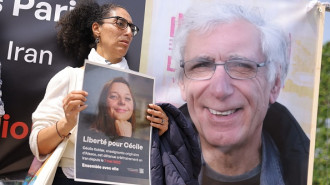Egypt ministers sworn in, with new cabinet faces
Egypt's new interior and defence ministers were sworn in on Thursday by President Abdel Fatah al-Sisi, following the latest cabinet shake-up that reflects continued government woes.
They will be led by Prime Minister Mustafa Madbouly, who previously served as housing minister.
The ministerial changes reflect Cairo's sluggish campaign against the Islamic State group centred in the Sinai Peninsula and militancy elsewhere in the country.
Lt. Gen. Mohamed Ahmed Zaki, the head of the presidential guard, was named as the new defence minister, replacing General Sedki Sobhi who was in the position since Sisi's first official election as president in 2014.
The head of the National Security department, Mahmoud Tawfik, was chosen to succeed Magdy Abdel-Ghaffar at the interior ministry, which deals with Egypt's notorious security services. Both, like Sisi, are military men.
In 2013, Sisi - then defence minister - led a military coup that overthrew of the elected Islamist government led by President Mohamed Morsi.
Nearly all of Egypt's modern presidents have come from the military, which wields considerable economic and political power.
A number of key military and security chiefs were replaced last year after a deadly ambush by militants outside Cairo that killed 16 police.
The inner-workings of Egypt's powerful military and intelligence is notoriously secretive, and it was not immediately clear what prompted the latest shake-up.
Egypt announced the launch of a major military offensive in February in the Sinai and Western Desert, near the Libyan border, aimed at dislodging militants.
IS have launched attacks on security services and the country's Coptic Christian minority.
Other militant groups have primarily targeted security and regime officials.
Sisi began a brutal crackdown on Islamist, liberal and left-leaning opponents last year, jailing thousands without charge and rolling back freedoms won in the 2011 Revolution, when dictator Hosni Mubarak was overthrown.
Sisi was re-elected in March in a vote in which he faced no serious competition, with opponents jailed or forced to drop out.
His strongest potential challenger was Maj. Gen. Sami Annan who was arrested after announcing his intention to run for office.





 Follow the Middle East's top stories in English at The New Arab on Google News
Follow the Middle East's top stories in English at The New Arab on Google News

![The law could be enforced against teachers without prior notice [Getty]](/sites/default/files/styles/image_330x185/public/2178740715.jpeg?h=a5f2f23a&itok=xMdFOAIF)
